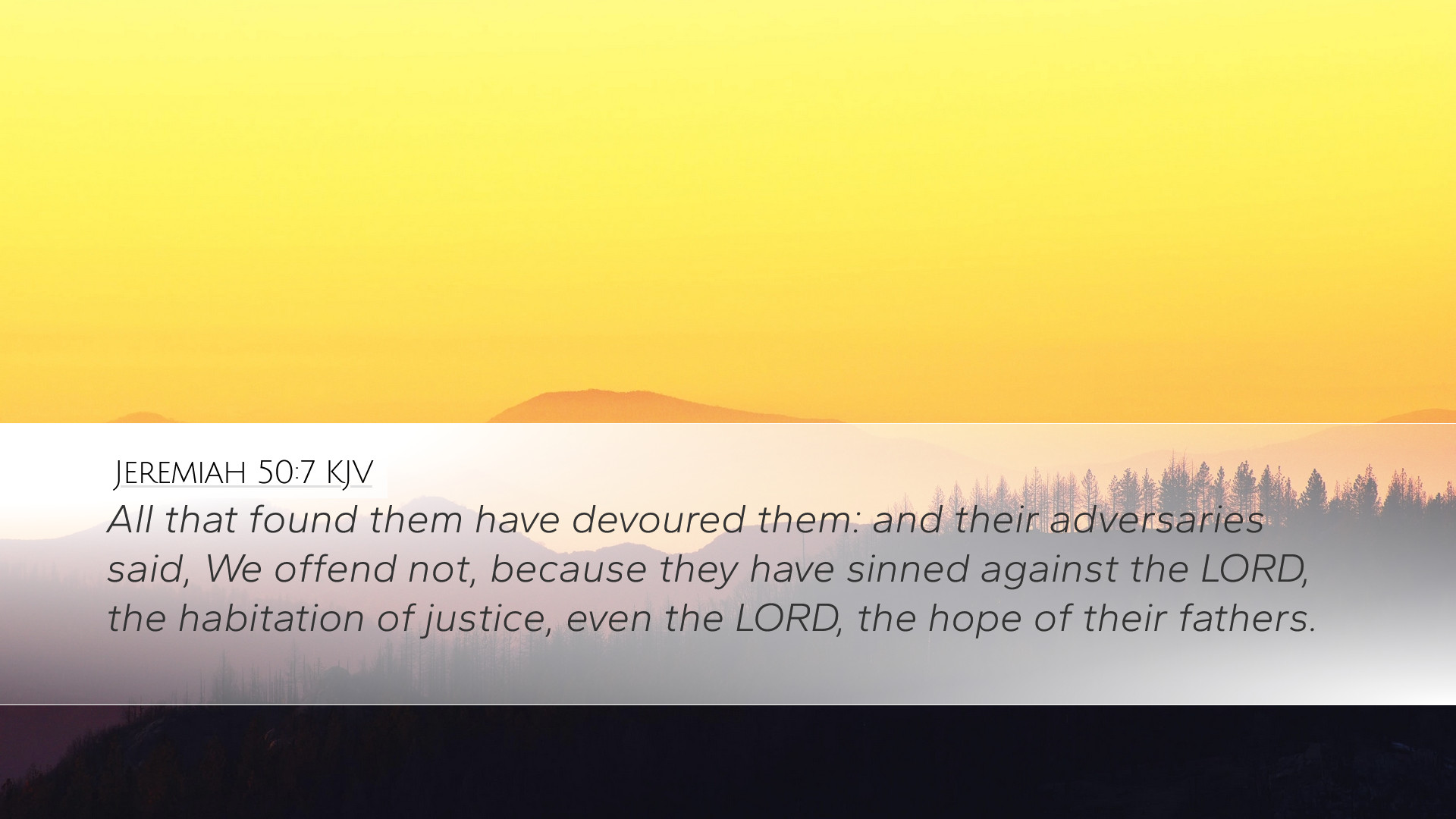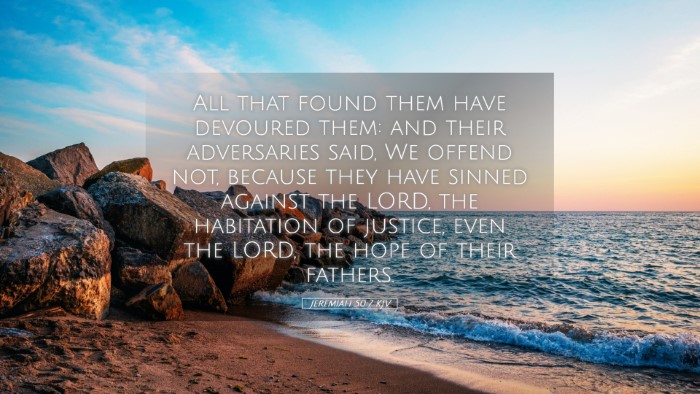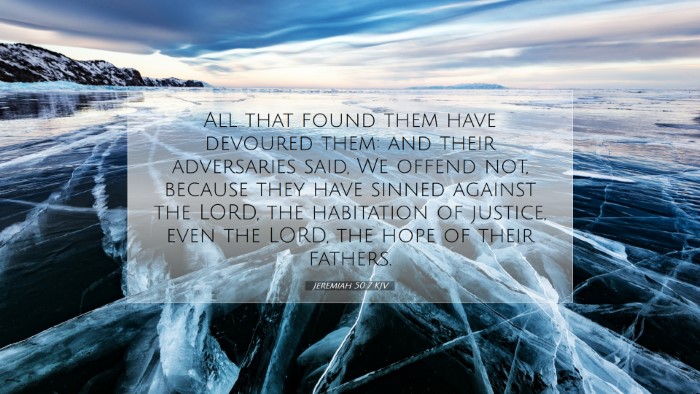Commentary on Jeremiah 50:7
Verse: “All that found them have devoured them: and their adversaries said, We offend not, because they have sinned against the LORD, the habitation of justice, even the LORD, the hope of their fathers.”
Introduction
In Jeremiah 50:7, the prophet Jeremiah speaks concerning the fate of Israel and Babylon. This verse encapsulates the consequence of sin and the resultant judgment that befalls the people who have turned from God.
Contextual Overview
Jeremiah prophesied during a turbulent time in Israel's history, proclaiming the inevitability of Babylon's downfall. The verse suggests that those who have been adversaries to Israel take a perverse satisfaction in their plight, believing themselves justified by Israel's sins against the Lord.
Commentary Insights
Matthew Henry's Perspective
Matthew Henry notes that the 'devouring' referred to here signifies not merely physical consumption but a deeper spiritual annihilation. He emphasizes the gravity of sin that invites judgment and vulnerability. In this context, the adversaries’ reasoning for their actions is addressed, wherein they believe their assault on Israel is warranted. Henry states the importance of recognizing that their cause is fundamentally flawed, rooted in the misunderstanding of God’s covenant relationship with His people.
Albert Barnes' Exegesis
Albert Barnes posits that this verse illustrates divine justice. He remarks on the arrogance of the adversaries who wrongly claim righteousness in their actions. Barnes explains that this verse serves as a reminder of the depth of Israel's offense toward God, personifying the consequences of their disobedience. He addresses the theological implications of 'sin against the LORD, the habitation of justice,' indicating that the divine nature of God is intrinsically linked to justice and hope.
Adam Clarke's Analysis
Adam Clarke elaborates on the phrase “the habitation of justice,” interpreting it as a reference to the Temple. Clarke suggests that the destruction of the Temple symbolizes the severance of a direct relationship with God, resulting in a societal collapse. He warns that those who oppress God’s people often justify their cruelty with skewed interpretations. Clarke stresses that God remains the ‘hope of their fathers,’ representing a lingering, albeit distant, connection to mercy and grace.
Thematic Elements
- Divine Justice: Across all commentaries, there is a recurring theme of justice that God serves. The text reveals the darker consequences of sin and disobedience.
- The Fall of the Adversaries: The adversaries' conclusion that they do not offend by their actions speaks to human rationalization in the face of divine ordinance.
- Hope in Despair: Despite the harsh realities presented, each commentary acknowledges that God's providence and faithfulness endure beyond judgment.
Theological Implications
Each commentary invites readers to reflect on the intersection between divine judgment and hope. The passage urges believers to remain vigilant, recognizing that unrighteousness invites calamity while underscores the eternal hope found in God. The commentary further entreats pastors and theologians to reassure their congregations—despite transgressions, God’s justice is neither capricious nor devoid of grace.
Contemporary Application
As modern-day readers engage with Jeremiah 50:7, they find relevance in personal and communal contexts, illustrating that the ancient struggle against sin continues today. The commentary offers substantial material for sermons, teaching, and personal reflection, helping believers navigate moral complexities within their lives. The call to uphold justice, both divine and social, resonates significantly within contemporary theological discourse.
Conclusion
Through an integration of Matthew Henry, Albert Barnes, and Adam Clarke’s insights, Jeremiah 50:7 serves as a poignant reminder of the gravity of sin and the righteousness of divine judgment. Yet, it also proclaims a hope that remains steadfast through the ages—a hope that calls believers back to a habitation of justice, revealing the true nature of God and His relationship with humanity.


